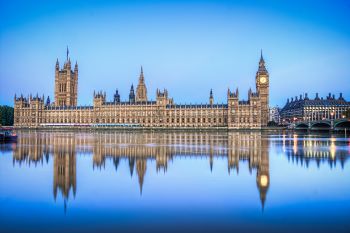
The National Living Wage, which applies to workers aged 21 and over, will rise by 4.1% from £12.21 to £12.71 per hour, whilst the National Minimum Wage for 18-20 year-olds will see an even sharper increase of 8.5% to £10.85 per hour.
The announcement, made ahead of the Autumn Budget, will benefit approximately 2.7 million workers nationwide. For full-time employees on the National Living Wage, this represents an additional £900 per year, whilst those on the National Minimum Wage can expect an annual boost of £1,500.
Whilst these increases are undoubtedly positive news for workers, they present challenges for charitable organisations already struggling with financial pressures. The wage increases follow April's substantial rise in the National Living Wage and an increase in employer National Insurance contributions.
Charity concerns
Following the government’s last budget in October 2024, CFG’s survey found that 21% of charities were 'very concerned' about affording the new minimum wage rate, with a further 22% 'moderately concerned' and 20% 'slightly concerned'.
And in advance of the 2025 autumn budget, a new CFG survey found that nearly 60% of charities reported that their finances had already been 'significantly impacted' by the National Living Wage increase since last year’s announcement.
The cumulative effect of consecutive above-inflation wage increases is beginning to bite hard. One charity leader explained: "The increase in the National Living Wage impacts us significantly as we have increased staff costs but don't have an equivalent increase in funding to absorb this and cannot reduce staff.”
Another highlighted the broader ripple effects: "The knock-on effect of several years of high Living Wage increases is that higher paid salaries are also forced upwards to maintain differentials and to avoid 'leapfrogging'"
CFG’s Head of Policy Richard Sagar comments:
“The Chancellor's increase in the National Living Wage and National Minimum Wage will be welcomed by many workers, and we recognise the government's commitment to making work pay. This represents genuinely positive news for millions of people across the country.
“However, for many charitable organisations, this increase – which significantly exceeds current inflation rates and average earnings – comes at a particularly challenging time. Following the sizeable rise in NLW and NMW in April this year, alongside the increase in employer National Insurance contributions, our research shows that many charities are already at financial breaking point.
“Our members have told us that they are making the difficult decision to reduce services and are being forced to consider recruitment freezes and redundancies. This doesn't just affect charitable employees – it directly impacts the vital services that vulnerable communities and people depend upon every day.
“Unlike for-profit businesses, charities cannot simply pivot to generate additional income. They rely on the generosity of the public and the support of funders. Without corresponding increases in grant funding and contract uplifts, many organisations will face impossible choices about which services they can continue to deliver.
“While we fully support fair pay for workers, we are concerned that without additional financial support for the sector, these increases risk the unintended consequence of reduced charitable services precisely when they are needed most. We hope the government will recognise this pressure and work with the sector to ensure that making work pay doesn't come at the cost of the communities we serve.”
For more about the NMW and NLW, visit gov.uk
Read CFG's full Autumn Budget briefing
« Back to all news